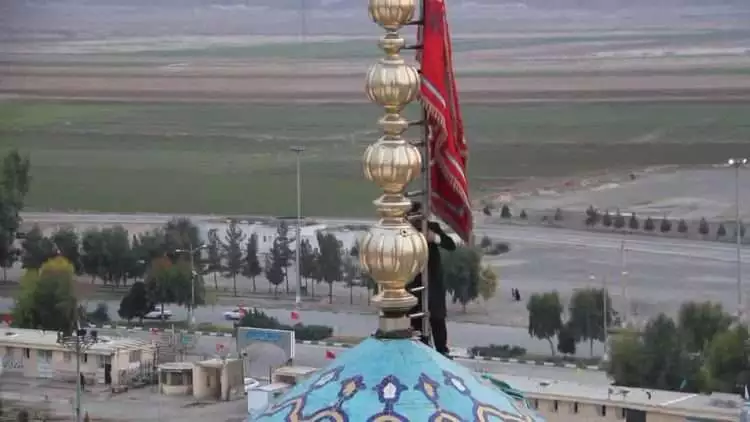The Iranian authorities have hoisted a symbolic red flag over the dome of the Jamkarān Mosque, located in the city of Qom, in an aftermath of the US strike that saw the US stocks tumble and wide condemnations from the Arab world.
The red flag, a symbol that has not been hoisted in Iran in recent history, is said to symbolize extreme danger, indicating a declaration of a war that will redraw the political map of the world in blood, according to reports. The Jamkaran mosque is the most important mosque in Iran.
The US Pentagon, however, ruled out further strikes as yet as they monitor the Iranian response to what the Iranian authorities called an assassination.
Two rockets have been fired at the US embassy in Iran after the killings amid the US and Canada calling Americans to leave Iran, but reports indicate that there were no casualties.
There has been widespread demonstrations in Iran against the killings-and against America-with the Shia group in Nigeria also adding their voice in the condemnation of the attack that President Trump said was done to prevent a devastating war. But analysts believe it is more likely to achieve the opposite. Iran has claimed they have marked out areas of possible strikes on American interests, the supreme leader calling the killing a “Grave mistake.” Democrats in the US are latching on the strike to push for the impeachment of Trump, insisting he ordered the strike in order to win sympathy votes in the upcoming elections. A video has surfaced online showing Trump accusing a former democratic president of planning to attack Iran to gain credibility at the polls. Iran appears to be the whipping child for American political odysseys.
Meanwhile, Iran’s Supreme Leader Ayatollah Ali Khamenei has replaced the head of the Revolutionary Guards Corps days after the United States designated the elite strike force a foreign terrorist organization. Brigadier General Hossein Salami, the new military chief, has been rumored in diplomatic quarters to have been linked to the 2010 arms interception in Nigeria, which was alleged to have been brought into Nigeria in controversial circumstances. A Tehran businessman, Azim Aghajani, was arrested and prosecuted by Nigerian authorities in connection with the arms shipment, which was appears to be on transit, in contravention of a UN arms embargo on Iran.
The Iranian government also appointed Esmail Ghaani to directly replace the slain major general Qassem Soleiman. He was Souleimani’s deputy in the Quds Force for 13 years, and has direct responsibility for, financial disbursements to affiliate groups like Hezbollah, according to the US. He appears to have been more directly linked to the shipment, which included Rocket Launchers, Grenades and 107mm rockets.
Aghajani was convicted in May 2013 on four of five charges relating to the shipment alongside his Nigerian accomplice and shipping agent, Usman Abbas Jega.
Discover more from The Source
Subscribe to get the latest posts sent to your email.








